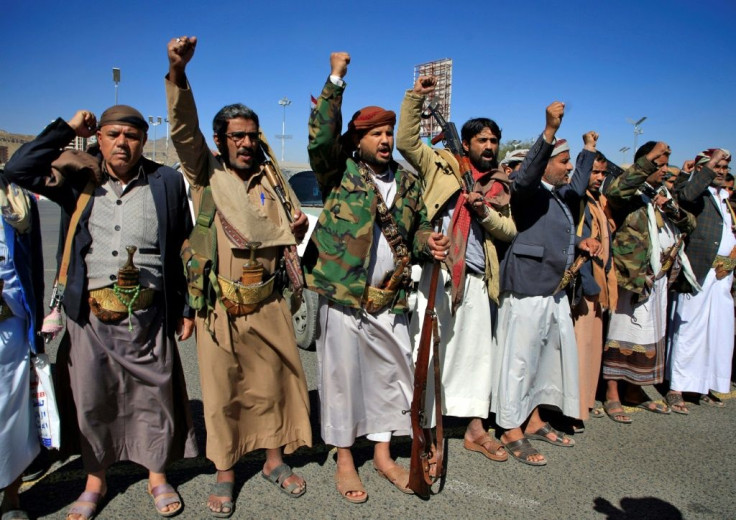US Moves To End Terror Designation Of Yemen Huthis
The United States has moved to delist Yemen's Huthi rebels as a terrorist organization, removing a block that humanitarian groups said jeopardized crucial aid as the country's warring sides cautiously welcomed a push for peace by President Joe Biden.
The grinding six-year war in Yemen has killed tens of thousands and displaced millions, triggering what the United Nations calls the world's worst humanitarian disaster.
A State Department spokesperson said Friday they had "formally notified Congress" of Secretary of State Antony Blinken's intent to revoke the terrorist designations.
The move, which will take effect shortly, comes a day after Biden announced an end to US support for Saudi-led offensive operations in Yemen.
"This decision has nothing to do with our view of the Huthis and their reprehensible conduct, including attacks against civilians and the kidnapping of American citizens," the spokesperson said.
"Our action is due entirely to the humanitarian consequences of this last-minute designation from the prior administration," they said, adding the US remained committed to helping Saudi Arabia defend its territory against attacks by the rebels.
Blinken's predecessor Mike Pompeo announced the designation days before leaving office last month, pointing to the Huthis' links to Iran, an arch-enemy of Trump, and a deadly attack on the airport in Yemen's second city of Aden in December.
"The revocation of the designations will provide profound relief to millions of Yemenis who rely on humanitarian assistance and commercial imports to meet their basic survival needs," a spokesperson for UN Secretary General Antonio Guterres said in a statement.
The war in Yemen has killed tens of thousands and displaced millions, triggering what the United Nations calls the world's worst humanitarian disaster.
The Iran-allied Huthis seized Yemen's capital Sanaa and much of north in 2014, sparking a Saudi-led intervention the following year.
Aid groups say they have no choice but to deal with the Huthis, who are the de facto government in much of Yemen, and that the terrorist designation would put them at risk of prosecution in the United States.
According to the UN, more than three million people have been displaced and close to 80 percent of Yemen's population of 29 million people need some form of aid for survival.
Biden on Thursday announced the withdrawal of US support for the Saudi-led offensive in his first major foreign policy speech since replacing Donald Trump.

Yemen's internationally recognised government, which is backed by the Saudi-led military coalition, welcomed his remarks and stressed the "importance of supporting diplomatic efforts to resolve the crisis".
It hailed the appointment of Timothy Lenderking as US envoy, describing it as "another important step" taken by the US to "end the war caused by the Iran-backed Huthis".
Iran said the US decision can help fix "past mistakes", and that Tehran backs "any efforts by the global community to support Yemen".
But foreign ministry spokesman Saeed Khatibzadeh added that the move "will not solve Yemen's problem on its own."
The Huthi rebels also welcomed the approach of the new US administration.
Abdulelah Hajar, adviser to the head of the supreme political council, a Huthi executive body, told AFP on Saturday that "canceling the designation is an advanced step towards peace".
He said Biden's administration had "got off to a good start", but warned the credibility of the steps "will not be achieved unless they are proven on the ground and felt by the Yemeni people -- by lifting the siege and stopping the war".
He added that Lenderking must "meet all parties", warning that if the Huthis are excluded, "there will be no step towards peace".
Saudi Arabia reacted by reasserting its commitment to a political solution in Yemen.
The kingdom welcomed Biden's "commitment to cooperate with the kingdom to defend its sovereignty and counter threats against it", according to the official Saudi Press Agency.
But for Yemenis, talk of a solution is very far from their reality.
"The war won't end; no one wants it to end. This is just propaganda," said Huda Ibrahim, a 38-year-old housewife from the port city of Hodeida.
"I'm not optimistic and I don't believe anything about ending the war. How will it end when clashes don't stop even for one night."
© Copyright AFP 2024. All rights reserved.





















